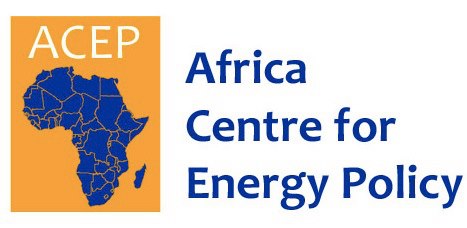The Africa Centre for Energy Policy (ACEP) has articulated gladness about the immediate steps taken by National Petroleum Authority (NPA), Ghana Standards Authority in with collaboration with some stakeholders to advance on fuel standards in the country.
In a statement signed by Dr. Mohammed Amin Adam, Executive Director of ACEP read “ACEP believes that a bold decision to benchmark Ghana’s standards against the European standard will most clearly define the leadership role NPA has taken and to accelerate sub-regional alignment to cleaner fuelsâ€
However, ACEP expressed disappointment in the NPA for not allowing non-governmental stakeholders and the citizens of Ghana to voice out their concerned as planned earlier. “Finally, we are disappointed that after fruitful initial deliberation with the NPA, which culminated in a scheduled public meeting with all relevant stakeholders and interested consumers on fuel standards, the NPA called for a postponement of the dialogue only to announce the new standards without input from non-governmental stakeholders and the citizens of Ghana who eventually suffer from low fuel standardsâ€.
Below Is The Full Statement:
NEW FUEL STANDARD ANNOUNCED BY NPA COMMENDABLE BUT UNSATISFACTORY–ACEP
Press Statement
Accra, 4th October 2016
The Africa Centre for Energy Policy (ACEP) is happy about the swift action taken by the National Petroleum Authority (NPA) and the Ghana Standards Authority in collaboration with some stakeholders to improve on fuel standards in the country.
The NPA announced yesterday that it has agreed with stakeholder to improve the regulatory standard for diesel from 3000PPM to 500PPM effective January 2017.
The authority also said that importers would be allowed to import products with ultra-low Sulphur content at 10PPM. Whilst this represents significant improvement in the standards,
ACEP believes that a bold decision to benchmark Ghana’s standards against the European standard will most clearly define the leadership role NPA has taken and to accelerate sub-regional alignment to cleaner fuels.
Again, the Chamber of Bulk Oil Distributors (CBOD) has articulated that the alignment with European standards will absorb the logistical cost associated with neutral standards such as 500PPM which the NPA has proposed.
ACEP emphasizes that the 500PPM announced is not satisfactory in view of its negative implications for our environment, our health and our vehicles.
It is curios why the NPA can put the national regulatory standard for fuel quality at 500PPM and yet proposes to industry to import fuel at 10PPM.
If it is convinced that 10PPM is the optimal standard that assures consumers of high quality fuels, why did it put the national standard at 500PPM? This shows that the NPA can do more to raise the standards further.
Indeed, we call on the NPA to consider benchmarking our national standards to the European standards.
It is refreshing however, to see that industry (BDCs) are rather willing to move to higher standards as they always did against national regulatory standards.
We want to commend the Chamber of Bulk Oil Distributors (CBOG) for accepting that the currently national regulatory standards pose serious danger to lives.
We are further satisfied by the determination of industry to import fuel with higher standards than what the industry regulator is going for.
We are wondering whether the position taken by NPA is due to regulatory fatigue on the part of our regulators, logistical failures or simply disrespect to fuel consumers.
It is unacceptable for industry to be more compliant with international standards than the industry regulators who are supposed to be setting the rules.
The discussion of fuel standards has dominated the media space for the past three weeks, owing to the sterling collaborative effort with our partner Public Eye.
We want to thank Public Eye for this support to the continent.
Hopefully very soon Africa will breathe cleaner air.
We are by this also encouraging governments of the rest of the Sub-region to set high fuel standards.
The level of pollution on the Sub-region is escalating with increasing traffic in our cities and towns.
Therefore, the decision to consume cleaner fuels cannot wait any longer.
ECOWAS should also show interest in this to accelerate migration to Ultra Low Sulphur Fuels across the region.
Finally, we are disappointed that after fruitful initial deliberation with the NPA, which culminated in a scheduled public meeting with all relevant stakeholders and interested consumers on fuel standards, the NPA called for a postponement of the dialogue only to announce the new standards without input from non-governmental stakeholders and the citizens of Ghana who eventually suffer from low fuel standards.
This is an action in bad faith. We want to remind the NPA that Civil Society, the media and the public are important stakeholders in this very important matter and must be consulted on the final standards that should be set for fuels in Ghana.
Singed
Dr. Mohammed Amin Adam
Executive Director





